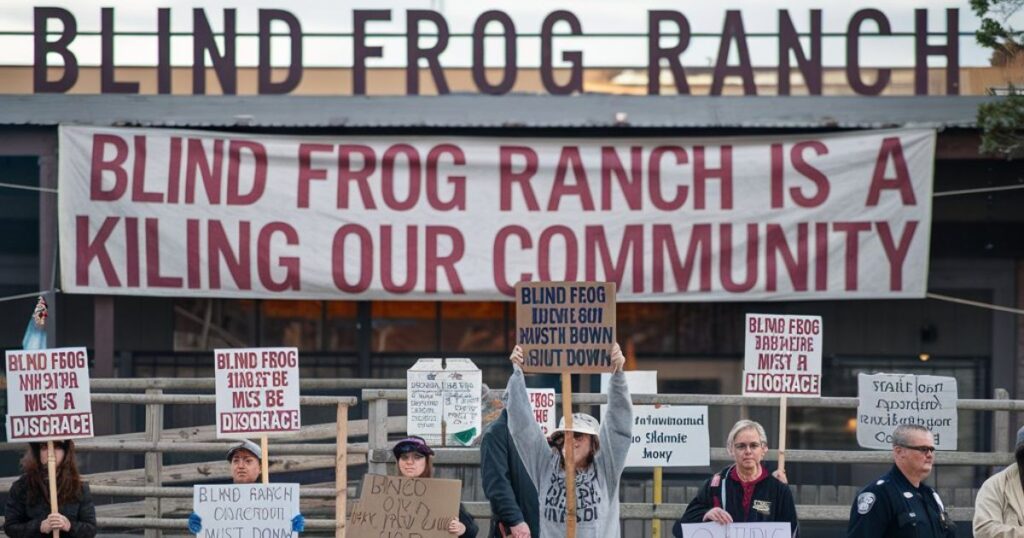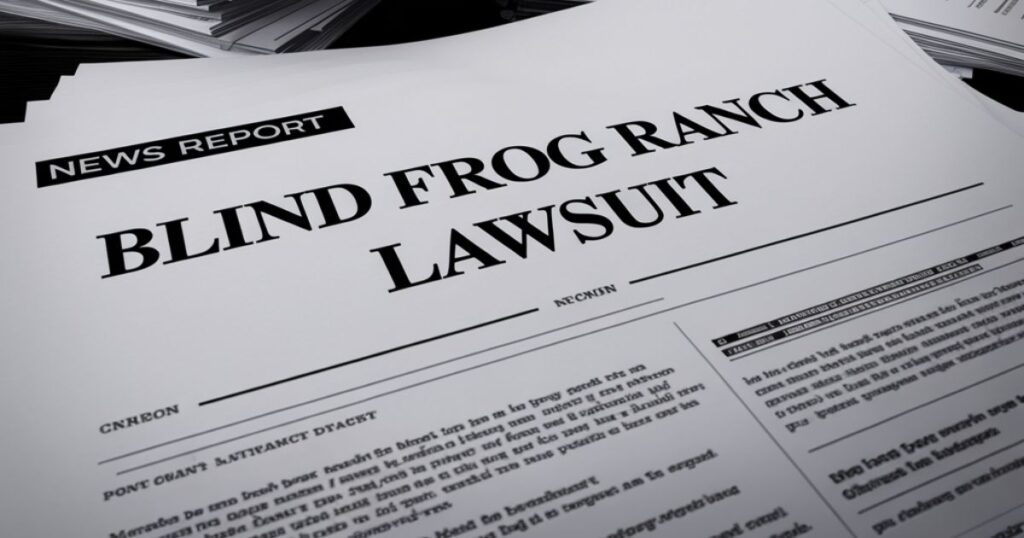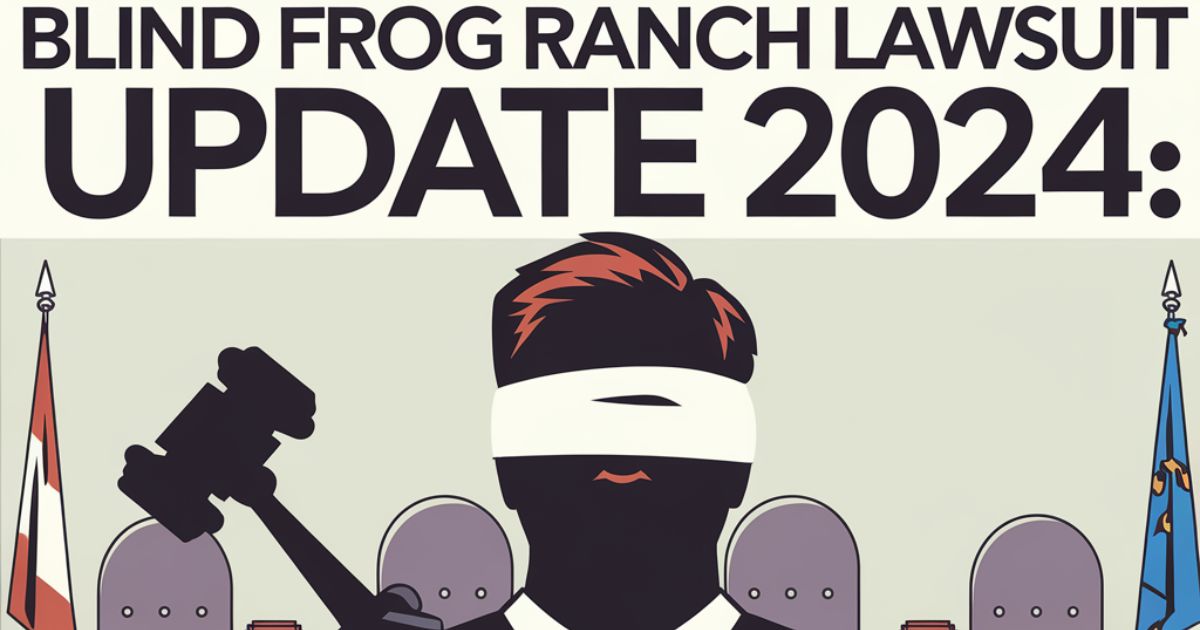The mysterious Blind Frog Ranch in Utah’s rugged landscape has transformed from a treasure hunter’s dream into America’s most watched property rights battle of 2024. This isn’t just another legal dispute – it’s a case that could fundamentally reshape how we balance private property rights with environmental protection across the United States.
Background and Key Players
The story of Blind Frog Ranch reads like a Hollywood script, but with very real-world consequences. Duane Ollinger acquired the property with dreams of uncovering its legendary treasures, including rumored Spanish gold, Native American artifacts, and mysterious underground chambers.
The property’s unique geology, featuring extensive cave systems and underground waterways, has made it a natural wonder that’s caught the attention of scientists and preservation experts alike.
What began as a treasure hunting venture has evolved into a complex web of legal challenges involving multiple stakeholders:
| Stakeholder | Primary Interests | Current Position | Key Concerns |
| Duane Ollinger & Family | Property development, treasure hunting | Pro-development | Property rights, financial investment |
| Environmental Groups | Ecosystem preservation | Anti-development | Water systems, wildlife protection |
| Local Community | Economic benefits, safety | Mixed stance | Tourism impact, property values |
| State Agencies | Regulatory compliance | Oversight | Safety, environmental protection |
| Scientific Community | Research access | Neutral | Geological preservation |
Recent Legal Developments
The latest chapter in this unfolding drama has seen significant developments throughout 2024. Court documents reveal an increasingly complex battle over Ollinger’s use of sophisticated excavation equipment and explosive materials.
In February, environmental scientists discovered a previously unknown network of underground springs that could be affected by the ranch’s activities, adding another layer of complexity to the legal proceedings.
A groundbreaking March 2024 ruling temporarily suspended certain excavation activities pending comprehensive environmental impact assessments. This decision sent shockwaves through the property rights community and energized environmental advocates who had long pushed for stricter oversight of private land development near sensitive ecological areas.
New evidence emerged in April suggesting the underground cave systems extend far beyond the ranch’s boundaries, potentially affecting neighboring properties and regional water systems. This discovery has expanded the scope of the legal proceedings and drawn in additional stakeholders from surrounding communities.
Also Read: Unpacking the White Oak Global Advisors Lawsuit: Implications and Insights
Ongoing Legal Proceedings
The current legal challenges touch on multiple aspects of property and environmental law, creating what experts call a “perfect storm” of competing interests. The court is examining evidence from both sides, including:
- Extensive geological surveys revealing previously unknown cave networks
- Environmental impact reports detailing potential risks to local ecosystems
- Historical documentation of the property’s use and significance
- Expert testimony on modern excavation techniques and their environmental impact
Recent testimony from leading geological experts has introduced compelling evidence about the interconnected nature of the underground systems. Dr. James Harper, a prominent hydrogeologist, testified that “activities on the ranch could potentially affect water quality and cave stability across a 50-square-mile area.”
Legal Implications and Community Impact

The ripple effects of this case extend far beyond Blind Frog Ranch’s boundaries. Local communities find themselves divided between economic opportunities and environmental preservation. Business owners report mixed effects – some benefit from increased tourism, while others worry about long-term environmental impacts on their operations.
The case has sparked intense debate about modernizing property rights laws to address contemporary environmental concerns. Local government meetings have become forums for heated discussions about the future of land use in the region, with some calling for stricter regulations and others defending traditional property rights.
Public and Media Interest

The television series featuring Blind Frog Ranch has elevated this local dispute to national prominence. Social media channels buzz with theories and debates, while mainstream media outlets provide regular updates. The increased scrutiny has brought both transparency and challenges to the legal proceedings.
The media attention has also highlighted broader issues about treasure hunting on private property and its environmental implications. Documentary filmmakers and journalists have descended on the area, producing in-depth investigations that explore both the historical significance of the ranch and its current controversies.
Expert Opinions
Legal scholars and environmental experts continue to weigh in on the case’s broader implications. Dr. Sarah Martinez, a leading environmental law expert, notes: “This case could establish crucial precedents for how we balance private property rights with environmental protection in an era of increasing ecological awareness.”
Property rights attorney James Wilson counters: “We’re witnessing a potential erosion of fundamental property rights that have been protected since our nation’s founding. The outcome here could dramatically impact private landowners across America.”
Dr. Elena Rodriguez, a conservation biologist, adds: “The unique ecosystem around Blind Frog Ranch represents an irreplaceable natural laboratory. Any damage could have cascading effects on local wildlife and water systems.”
Conclusion
As 2024 progresses, the Blind Frog Ranch lawsuit continues to evolve, challenging traditional notions of property rights and environmental responsibility. The case has become a landmark battle that could reshape how we approach private land use in environmentally sensitive areas for generations to come.
FAQ’s
Who currently owns Blind Frog Ranch?
Duane Ollinger maintains ownership, though current legal proceedings have imposed significant restrictions on property development and excavation activities. The ranch’s management structure includes family members and professional advisors who oversee various aspects of operations.
Do they ever get the box out of Blind Frog Ranch?
The mysterious box recovery operation became one of the most talked-about events in the ranch’s history. While initial excavation attempts faced numerous challenges, the eventual recovery led to unexpected discoveries that have become part of the ongoing legal narrative.
Do they find anything at Blind Frog Ranch?
Several significant discoveries have been documented, including rare coins and metals found in flooded tunnels. These findings have complicated the legal proceedings by raising additional questions about historical preservation and artifact rights. Recent sonar scanning has also revealed potential new chambers that remain unexplored due to the current legal restrictions.
How do we thank a litigation attorney?
Beyond traditional methods like testimonials and referrals, many clients choose personalized appreciation through Customized Challenge Coins or other meaningful gestures. Building strong professional relationships often proves most valuable in the long run.
Is Chad from Blind Frog Ranch still married?
Yes, Chad continues to balance family life while running a successful crop-dusting business that helps fund ranch operations. His wife and four children remain supportive of the family’s efforts to protect their property rights while working through the current legal challenges.
Explore the latest news and insights from Echozynth and beyond at Echozynth.com

Kiara Arushi is the dedicated admin of this personal website, which serves as a comprehensive hub for general information across various topics. With a keen eye for detail and a passion for knowledge sharing, Kiara curates content that is both informative and engaging, catering to a diverse audience.
Her commitment to providing accurate and up-to-date information ensures that visitors find valuable insights and practical tips in every post. Whether you’re seeking the latest trends or timeless advice, Kiara’s expertise makes this site a trusted resource for all.


